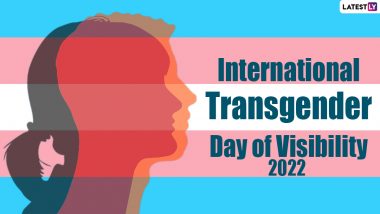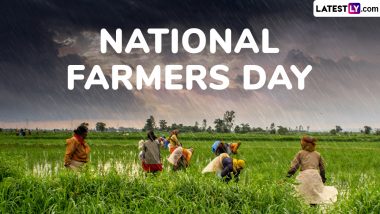Each year on March 31, the world observes Transgender Day of Visibility (TDOV) to raise awareness about transgender people. International TDOV was created in 2010 by trans advocate Rachel Crandall. Crandall, the head of Transgender Michigan, created TDOV in response to the overwhelming majority of media stories about transgender people being focused on violence. Transgender Day of Visibility recognizes the generations of struggle, activism, and courage that have attempted to bring full equality for transgender and gender non-binary people around the world. The scale of this struggle is evidenced by the inability of the majority of the world to even understand the term transgender and to mistake transgenders with persons who identify themselves as one of LGBTQ.
Transgender Day of Visibility History & Significance
The most common types of trans people are trans women, trans men, and non-binary people — trans women are women who were AMAB (assigned male at birth) and transitioned to female; trans men are men who were AFAB (assigned female at birth), and non-binary people are people who do not identify with male or female (and maybe AFAB or AMAB). Transgender persons of all ages face high rates of violence, harassment, and discrimination. Even Transgenders in an advanced and educated county like American continue to face discrimination in employment, housing, health care, and public accommodations. The situation in the developing and underdeveloped parts of the world is horrific and challenging, to say the least. Last year America’s President Joe Biden signed an Executive Order on Preventing and Combating Discrimination on the Basis of Gender Identity or Sexual Orientation.
He also issued a proclamation recognizing Transgender Day of Visibility. These are the kind of political reforms and recognitions needed to provide the transgender community with the protection it deserves under a nation’s constitution. Slowly and thanks to the efforts of transgender people who have shared their experiences, there has been awareness about their existence, struggles and lack of human rights. Governments have begun to take notice and society has begun to empathize. The very least we as a community can do is to keep our knowledge up to date.
There exist a vast number of resources on the topic if you Google “tales of trans people” – however, the majority of the articles are based on topics like “inequality,” “discrimination,” “transphobia,” and “violence.”
With the power & reach of social media and the use of hashtag #TransgenderDayOfVisibility, we can share articles, statistics and experiences to make our acquaintances more aware of the struggles of transgenders.
On March 31, there may be a Transgender Day of Visibility event near you, many NGOs arrange the same. On this day, go to a public gathering to meet new people and make new acquaintances. Take photos, ponder and rid yourself or anyone you know of transgender biases.
(The above story first appeared on LatestLY on Mar 31, 2022 07:28 AM IST. For more news and updates on politics, world, sports, entertainment and lifestyle, log on to our website latestly.com).













 Quickly
Quickly




















